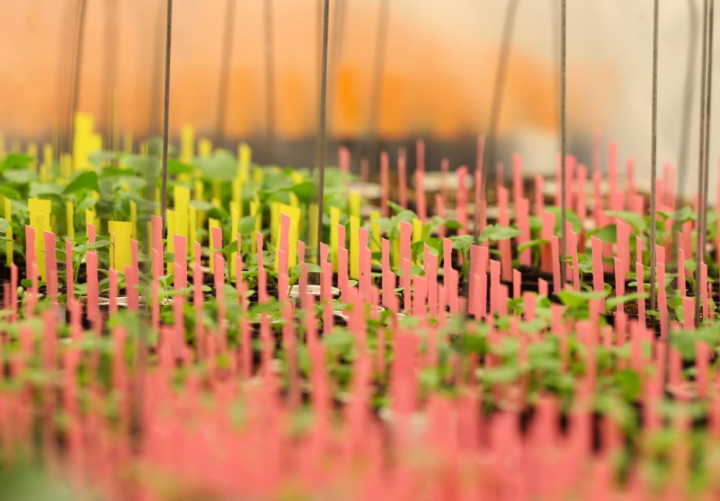A scientist at the Global Institute for Food Security (GIFS) has been awarded nearly $625,000 to enhance a research project that could speed up plant breeding in Saskatchewan and around the world.

GIFS researcher Martin Mau’s goal is to preserve hybrid vigour in Brassica crops, such as canola.
Officials said the strategy uses apomixis, a naturally occurring form of plant reproduction in which a flowering plant produces seeds without sexual crossing with another plant.
Mau said apomixis is largely absent in food crops, and has tremendous potential in plant breeding.
“For farmers, bringing apomictic reproduction into elite hybrid crop plants would result in identical favourable traits in future offspring, reducing the cost of seed production,” Mau said in a press release.
“For breeders, apomictic crops could enable the cost-efficient transfer of favourable traits from wild relatives into their elite inbred lines for worldwide use on locally adapted crops in niche breeding projects.”
For the past four years, Mau’s team has been working to demonstrate the transfer of apomixis into a plant which is a scientific model organism of the mustard family.

Get daily National news
With the new funding, Mau and his team will mature their breeding approach in canola.
WATCH BELOW: Cannabis legalization brings changes to hemp industry

They will try to identify the genetic factors that contribute to apomictic reproduction. Officials said their approach could provide them with the information needed to potentially introduce apomixis in other crops.
Mau received the funding from Saskatchewan’s agriculture development fund for the four-year project.
GIFS was founded at the University of Saskatchewan in 2012 with the mission to help feed the world through transformative innovations in agriculture and food production.


Comments
Want to discuss? Please read our Commenting Policy first.